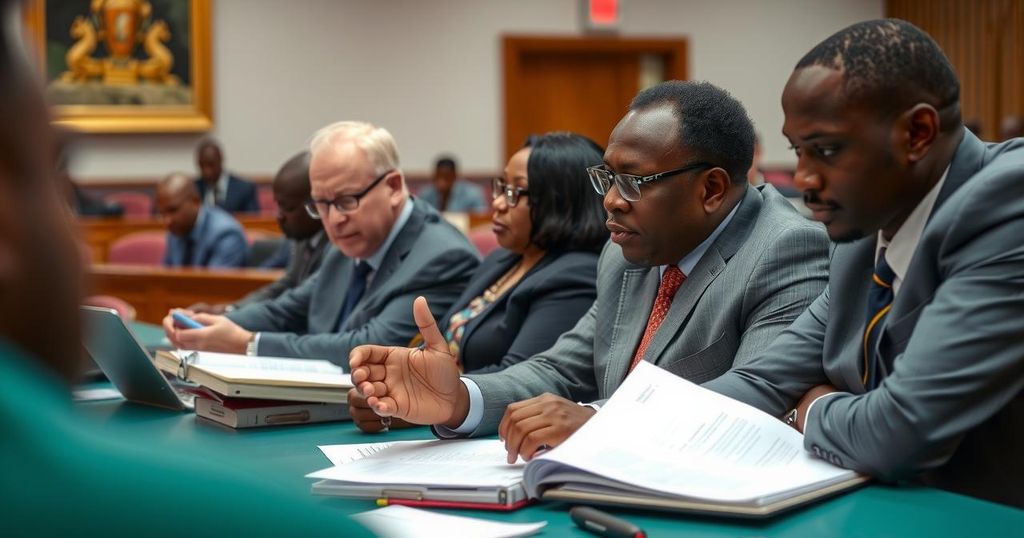Namibia Court Allows Opposition Parties to Inspect Election Data
A Namibian electoral court has granted opposition parties the right to inspect election materials from the recent elections, amid allegations of irregularities and voting issues. SWAPO, the ruling party, has maintained its power despite concerns raised by the opposition. The electoral commission is required to provide data for examination, highlighting growing tensions surrounding electoral integrity in Namibia.
On December 13, 2024, a Namibian electoral court granted two opposition parties the right to examine electoral materials linked to the controversial elections held on November 27, 2024. The ruling party, SWAPO, has maintained its dominance by winning both the presidential and parliamentary elections, marking 34 years of continuous governance. The opposition, led by the Independent Patriots for Change (IPC) and supported by the Landless People’s Movement, has raised concerns about irregularities and flaws in the electoral process, intensifying scrutiny over the legitimacy of the election results.
The IPC contended that extended voting periods due to reported shortages of ballot papers and technical glitches potentially compromised the integrity of the election. In their court filing, they stated, “There were clearly irregularities in the election. IPC seeks the information in order to … determine the extent of the irregularities.” This inquiry aims to evaluate whether further legal action regarding the elections’ validity is warranted. Namibia’s electoral court has mandated the electoral commission to provide the requested data, including detailed voting statistics, ensuring they comply by next week.
President-elect Netumbo Nandi-Ndaitwah, who is set to become Namibia’s first female president in March, rejected claims of electoral malfeasance, asserting that” I am not even listening to those critics”. The electoral commission previously declared that the vote was conducted fairly despite the challenges, adding complexity to the opposition’s claims and the unfolding political landscape in Namibia. This situation poses significant implications for the country’s stability and democratic processes going forward.
In Namibia, the political climate has been fraught with challenges surrounding electoral integrity, particularly following the elections held in late 2024. The elections were notable not only for their outcome but also for the reported logistical issues, such as ballot paper shortages and technological failures that led to extended voting periods. The ruling SWAPO party’s long-standing dominance adds a layer of sensitivity to the opposition’s claims of electoral irregularities. The unfolding legal battle signifies a critical moment in Namibia’s democratic journey, as the opposition seeks to ensure transparency and accountability in the electoral process.
This court ruling marks a pivotal development in Namibia’s electoral process, facilitating the opposition’s access to crucial election data that could impact potential legal proceedings. As the IPC and the Landless People’s Movement seek to substantiate their claims of electoral discrepancies, the resolution of these investigations will be vital in determining the legitimacy of the recent elections and the future of democracy in Namibia. The ruling party’s assertions regarding the fairness of the election will continue to face scrutiny as the situation evolves, revealing the complexities of political authority in the nation.
Original Source: indianexpress.com




Post Comment